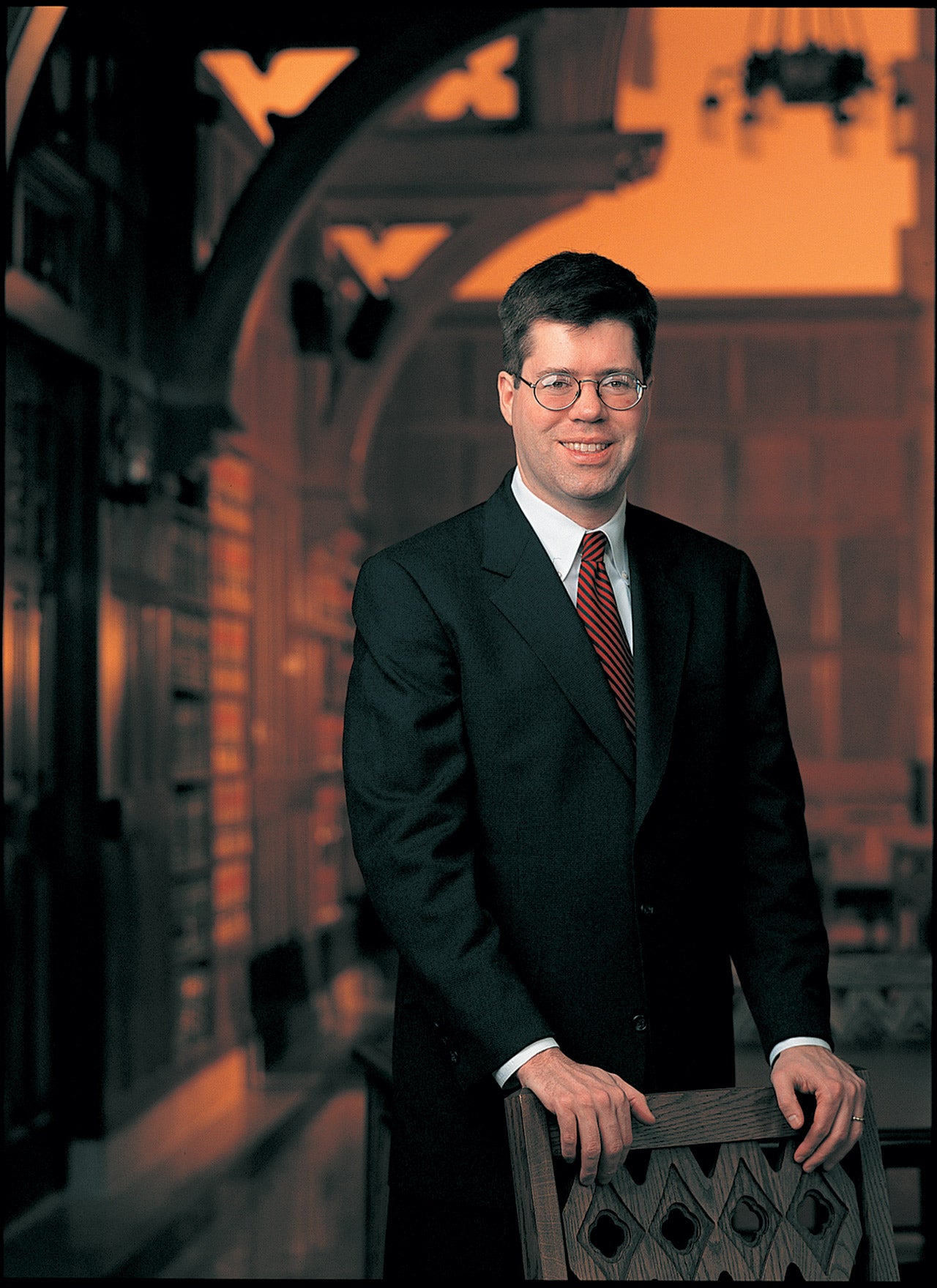At age 39, Joseph D. Kearney ’89 is one of the youngest law school deans in the country. But the new dean of Marquette University Law School in Milwaukee would rather talk about how he wants to apply his legal experience to his new position. And Kearney has experience–as a former Supreme Court clerk, big-firm litigator and law school professor. On July 1, when he became the ninth dean in the century-long history of Marquette’s law school, he began yet another phase in his career, as an administrator and leader.
“I have always thought of myself as a lawyer first,” Kearney said. “I hope that won’t have to change.”
At HLS, however, Kearney’s erudite side was more evident. His third-year paper, which he wrote under the supervision of Professor Charles Donahue Jr., was a study of the recusal of judges in medieval Europe. Kearney recalls spending numerous hours in Langdell’s Treasure Room, where the former Yale classics major first had to translate medieval legal texts from Latin before incorporating them into his paper.
After graduating from HLS, Kearney clerked on the Ninth Circuit for Diarmuid F. O’Scannlain ’63. He then returned to his hometown of Chicago in 1990 to do civil litigation at Sidley & Austin (now known as Sidley Austin Brown & Wood). More than half of his work during his five years at Sidley consisted of appellate and regulatory work for AT&T.
After serving as a clerk to Supreme Court Justice Antonin Scalia ’60 during the 1995-1996 term, Kearney returned to Sidley, but by this time he had decided to seek a position as a law school professor. Before beginning his search, he promised his wife, Anne Berleman Kearney ’90, that they wouldn’t move more than 100 miles from Chicago.
Then Marquette offered him a position. Though it’s 95 miles from Milwaukee to downtown Chicago, his parents’ home on Chicago’s South Side was beyond the 100-mile limit. Kearney, a hard-core White Sox fan, came up with a solution that was part Solomon and part South Side: “The measure is Comiskey Park, and that’s 99 miles,” he said.
At Marquette, he has taught civil procedure in addition to administrative law and regulated industries, two courses that grew out of his work representing AT&T. Kearney says that his emphasis on the real-life application of legal theories has been a good fit at Marquette. “Marquette students are intensely practical,” he said. “If they believe that you have a basis in experience for what you are saying, they are more interested.”
As dean, Kearney wants Marquette to continue to advance in national academic circles. He also wants to continue the school’s tradition of producing students who are committed to public interest work. His predecessor was Howard Eisenberg, a legendary pro bono lawyer in Wisconsin. Kearney says that in honor of Eisenberg’s legacy, he wants to find ways “to imbue this public interest ethic in the students.” One issue now under discussion by the faculty is whether Marquette should follow HLS’s example and establish a pro bono requirement.
In working toward these goals, Kearney keeps his focus on how Marquette can be of practical help to the city and state he now calls home. “To train men and women with an interest in using law to assist others should be the focus of law schools,” he said. “We aren’t schools of philosophy; we’re professional schools.”
